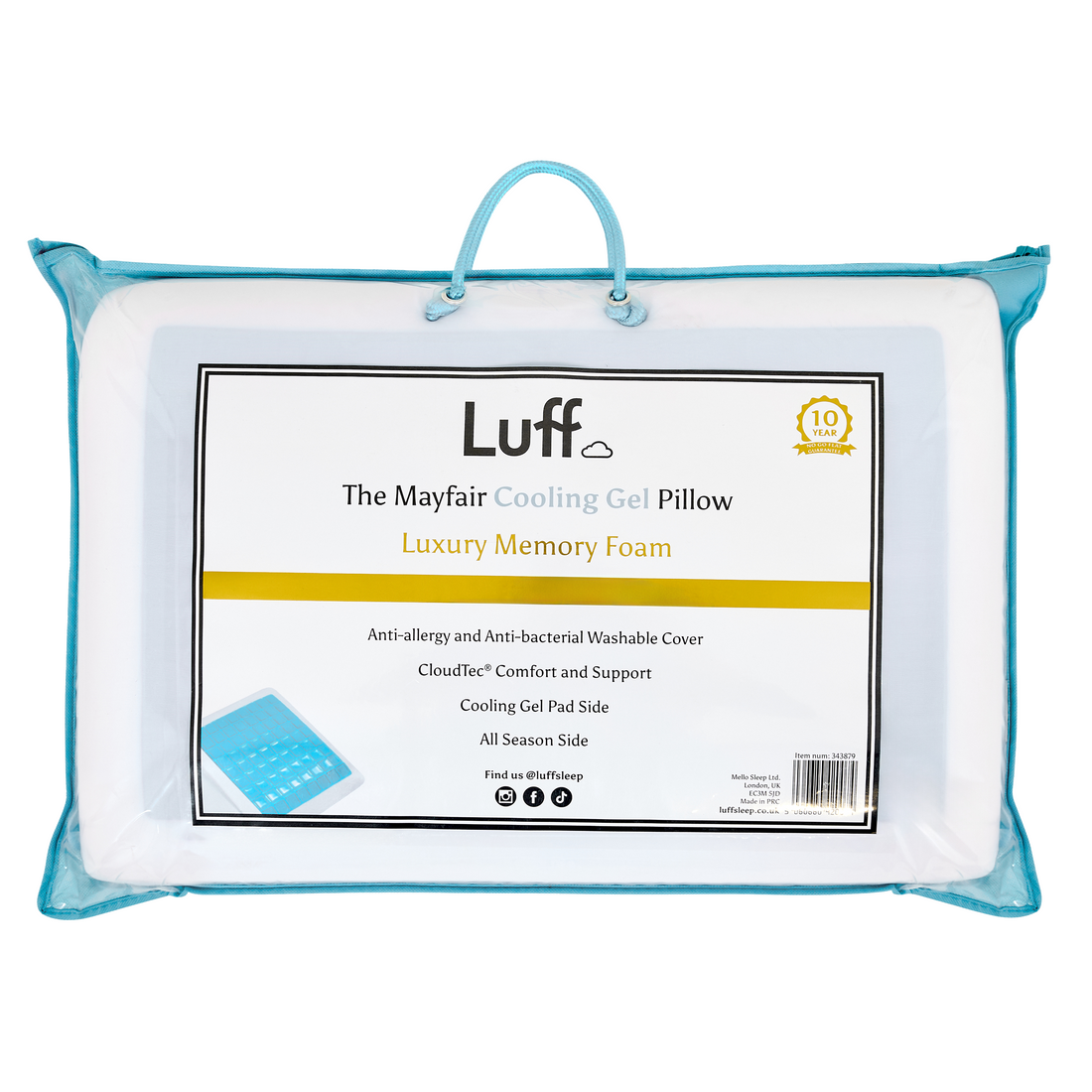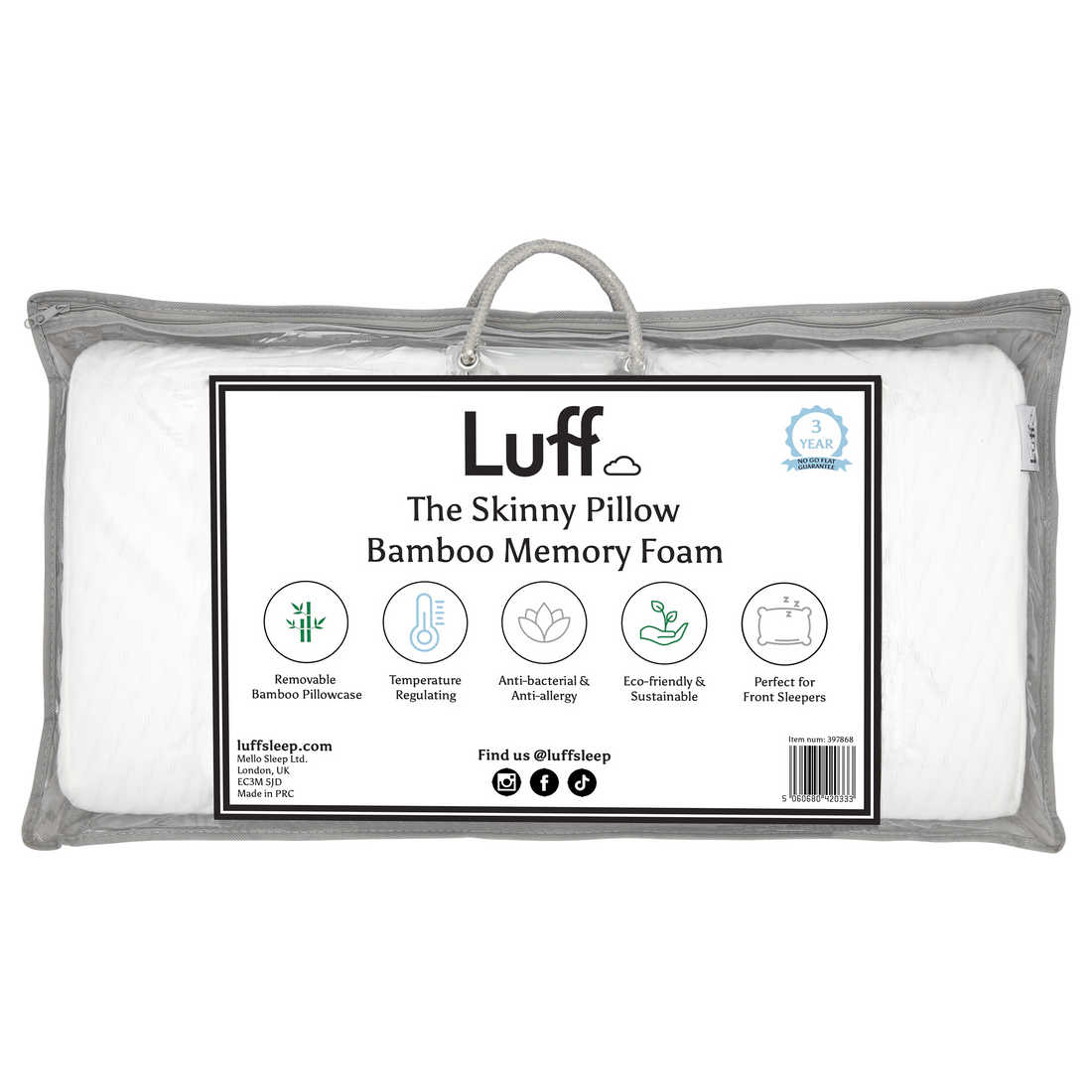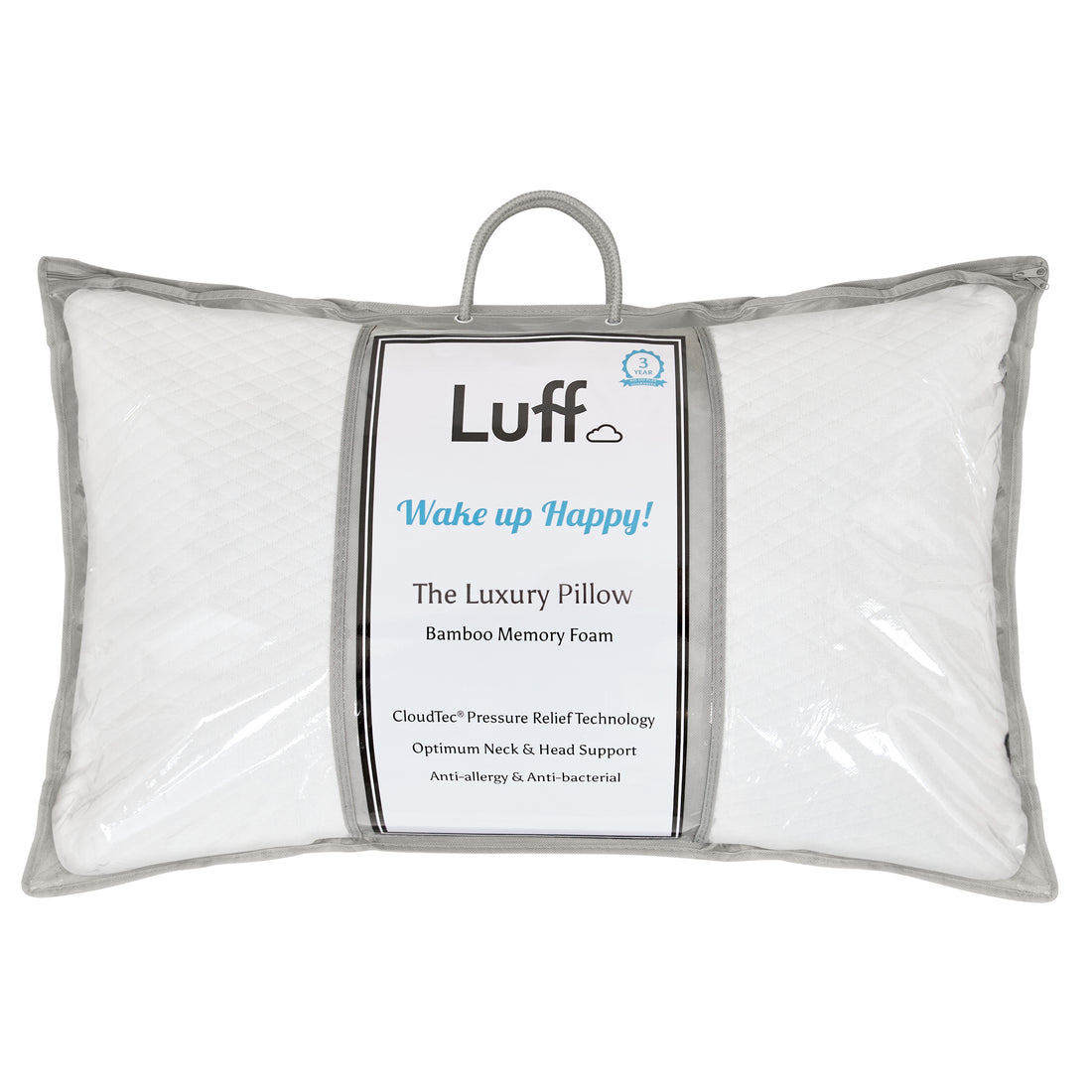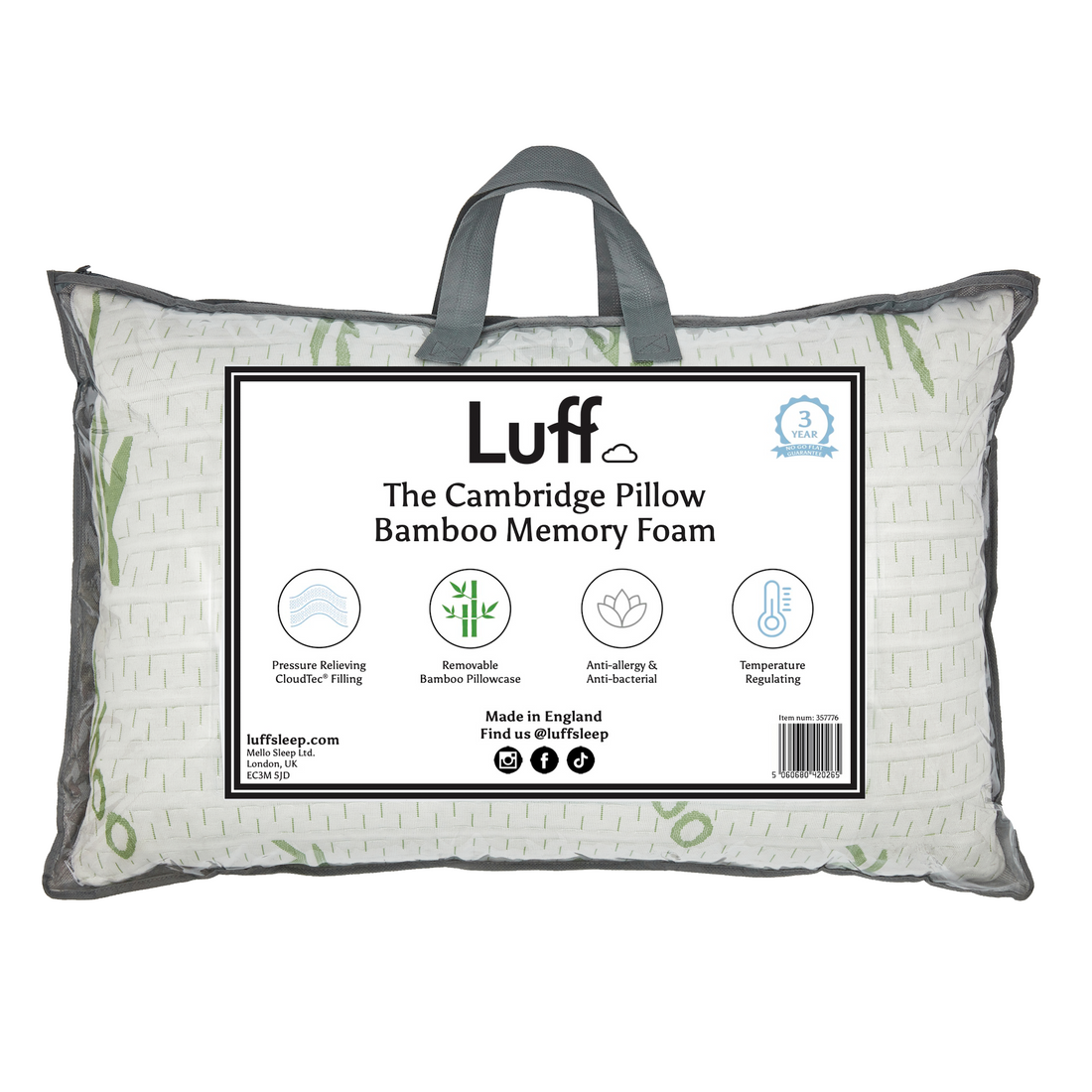When it comes to looking after your skin, most people focus on the latest creams, serums and routines. But one of the most effective ways to improve your complexion is also the most overlooked – sleep. The link between sleep and skin health is well supported by dermatologists, with studies showing that the body uses sleep to repair, restore and protect your skin from daily stress.
In this article, we explore how sleep affects your skin, the role of your pillow in supporting skincare, and practical anti-ageing sleep tips that can help you maintain a healthier, more youthful appearance.
What Happens to Your Skin While You Sleep?
While you sleep, your body carries out essential repair processes. This includes regenerating skin cells, producing collagen and balancing hydration levels. Deep sleep is especially important, as it increases blood flow to the skin and helps reverse the effects of UV damage and pollution.
If sleep is interrupted or cut short, these processes do not happen properly. You may wake up with dull, dry or inflamed skin. Over time, this can lead to faster signs of ageing and a less even skin tone.
Why Sleep and Skin Health Go Hand in Hand
The connection between sleep and skin health is becoming more widely understood. Even a few nights of poor-quality sleep can result in:
-
Dry or flaky skin
-
More visible fine lines and wrinkles
-
A loss of skin firmness and elasticity
-
Puffiness and dark under-eye circles
-
A higher chance of acne and skin sensitivity
This is partly due to higher levels of cortisol, the stress hormone, which rises when you do not sleep properly. Cortisol can break down collagen, the protein that gives skin its structure. It also increases inflammation, which can worsen skin conditions such as eczema or rosacea.
On the other hand, consistent, high-quality sleep supports better skin health, helping your body manage inflammation, maintain hydration and promote natural repair. This makes good sleep a foundational part of any anti-ageing routine.
The Best Pillow for Skincare
Many people forget that what you sleep on can have a big impact on your skin. The best pillow for skincare is one that supports your face and neck without causing pressure or trapping heat.
Traditional pillows made from synthetic fibres can absorb oil, product and sweat. They may also cause friction, leading to creases or irritation on the face. If you are aiming for healthier skin, it is worth choosing a pillow with the following features:
-
A breathable, temperature-regulating fabric such as bamboo
-
A hypoallergenic and antibacterial fill
-
A smooth, supportive surface that avoids facial compression
A good pillow not only helps you sleep better. It also reduces the chance of clogged pores, irritation and fine lines caused by pressure or overheating. Combined with a clean pillowcase and proper airflow, this can support clearer, calmer skin overnight.
Anti-Ageing Sleep Tips to Support Your Skin
If you are trying to reduce signs of ageing, improve your glow or simply take better care of your skin, improving your sleep routine is a smart place to start. Here are some simple anti-ageing sleep tips that can make a real difference:
-
Try to sleep on your back to avoid pressure on the side of your face
-
Keep your bedroom cool to help regulate body temperature
-
Avoid alcohol or caffeine close to bedtime
-
Stick to a regular bedtime to support your skin’s natural rhythm
-
Wash your pillowcase once a week to prevent buildup of bacteria and oils
These small changes to your sleep environment and bedtime habits can lead to big results. You might be surprised by how much more rested and refreshed your skin looks after just a few days of consistent, quality sleep.
Lifestyle Factors That Link Sleep and Skin Health
While your pillow and sleep duration matter, your daytime habits also influence your skin overnight. Hydration plays a key role. Dehydrated skin is more prone to irritation and flakiness, especially if you sleep in a dry room. Similarly, high-sugar diets or heavy evening meals can affect your hormone balance and inflammation levels, which show up on your skin.
Your evening wind-down routine is just as important. Taking time to relax, whether with a warm shower or light stretching, helps reduce cortisol levels and prepare your body for deep rest. All of these details add up to support not just better sleep, but better skin as well.
Luff Sleep Pillows and Skin-Friendly Sleep
Your pillow is one of the most important tools for skin repair. At Luff Sleep, we design our pillows to improve comfort, support and skin wellbeing while you rest.
Our Prestige Adjustable Bamboo Pillow is filled with shredded memory foam and natural bamboo fibre. It offers the structure and airflow needed to support deep, undisturbed sleep, while staying cool and breathable against your skin.
For those who sleep hot or need extra cooling support, the Mayfair Cooling Pillow offers firm memory foam with a built-in cooling layer. This helps reduce heat build-up and facial sweating, both of which can affect the skin overnight.
To complete your setup, pair your pillow with our 100% Organic Bamboo Bedding Set. Naturally breathable and hypoallergenic, it supports a healthier sleep surface that feels gentle on sensitive skin.
Final Thoughts: Better Sleep Means Better Skin
There is no doubt that the quality of your sleep shows on your face. From skin tone to fine lines, dark circles to blemishes, everything improves when your body is well-rested. If you are looking for new ways to support your skin health, your evening routine should begin with better sleep, not just skincare.
Choosing the right pillow, upgrading your bedding and following smart sleep habits can all contribute to a more radiant complexion. The connection between sleep and skin health is strong, and the changes you make tonight could affect how your skin looks for years to come.






